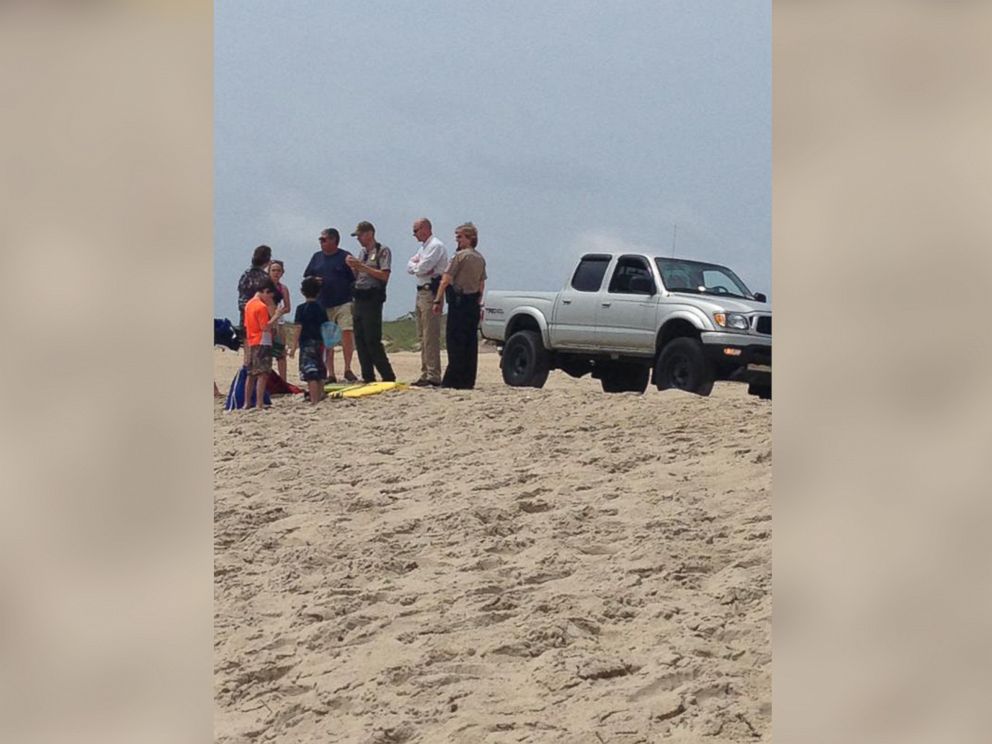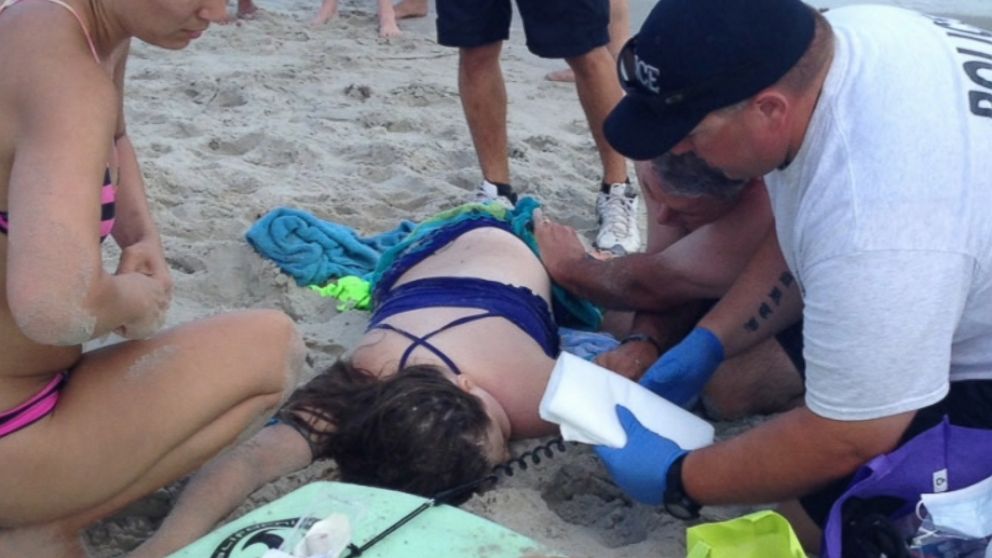How to Stay Safe From Shark Attacks Over Fourth of July Weekend
Tips from a former Green Beret and survival expert.
— -- Less than two weeks into summer, a string of shark attacks have already been reported in North Carolina, South Carolina and Florida.
So, if you're heading to the beach this Fourth of July weekend, especially vacations spots in North Carolina, where seven shark attacks have been reported since June, experts say it's important to know how to stay safe in the water.
Here are some tips from former Green Beret and survival expert Terry Schappert:
1. Stay calm.

If you see a shark, don't thrash or scream, Schappert told ABC News today. Just turn around, get out of the water, and tell everyone else to get out, he said.
Sharks pick up vibrations and smells, but most of the time, they can't see you, Schappert said.
"The more you flail around ... [the sharks] are very attracted to that," Schappert said.
2. Have a plan.
Every beach-goer should have an evacuation plan, which includes knowing where the closest hospital is, Schappert said.
"Just think in your head, what would happen ... if someone you love just got bit? What now?" he said. "Don't be paranoid, but have a procedure. Think about how you'd get out of the water, then think about ... the chain of what would happen next."
"Try not to freak out," Schappert added. "But know it's a possibility."
3. Know first-aid.
Most shark bites are on the limbs, according to Schappert and other experts, and when a shark's mouth hits a swimmer's arm or leg, "it's bound to sever an artery."
"Shark bites are not smooth -- they're jagged -- which makes the wound worse," he said. And the more jagged the wound, the more it will bleed, so it's important to know first-aid.
"The best thing you can do for that person is to stop the bleeding," Schappert said, which, if the victim is bit on a limb, means applying a tourniquet.

In 2014, Schappert took ABC News' Matt Gutman swimming in shark-infested waters off the Bahamas.
To properly learn how to fend off sharks, Gutman pulled on 15 pounds of chain mail, and then put clothes on top to simulate real people finding themselves stuck in shark-infested waters following a plane or a boat crash. Gutman and Schappert then did what experts say not to do: flapping around in waters where sharks were feeding, wearing regular clothing.
While they were in the water, Schappert's advice to Gutman was to:
1. Slow down your movements.
Fast movements give off the signal of prey, he said. Also conserving energy is key to survival in the above scenario.
2. Team up.
If there are two people in the water, Schappert recommended treading water back to back to limit the spheres of control by half, to 180 degrees each.
3. Fight back.
If the sharks begin attacking, fight them off, Schappert said.
He said to strike the sharks using quick, downward punching motions.
"All you can do is fight and let them know 'I am not going down easy,'" Schappert told Gutman.
With the Fourth of July approaching, some law enforcement officials along the North Carolina coast, where there have been seven shark attacks within several weeks, are calling for some of the waterfront communities to consider closing their beaches.
Kaye Dotson, a tourist in the area of Ocracoke Island Beach, North Carolina, said today that she won't let her grandchildren go in the water after the recent spate of shark attacks.
"Just the fact that [the sharks are] out where we go. We always swim out there. I swim out there with my grandchildren," Dotson told ABC News today. "I am not [letting them in the water] and I hope their parents are not."
Sarah Johnson, Public Information Officer for Hyde County, North Carolina, told ABC News today that, while Hyde County has no control over beach patrol or staffing, the EMS presence at Ocracoke Island will be increased slightly this weekend.
North Carolina's Cape Hatteras National Park Service will add extra beach patrol rangers this weekend who will warn beach-goers of the dangers, Cyndy Holda, public affairs specialist at the National Park Service, told ABC News today.
While there won't be extra surveillance in the water, Hold said, there will be "strong encouragement to not stray from the shore" for those who do go in the water.
ABC News' Matt Gutman and Josh Haskell contributed to this report.




